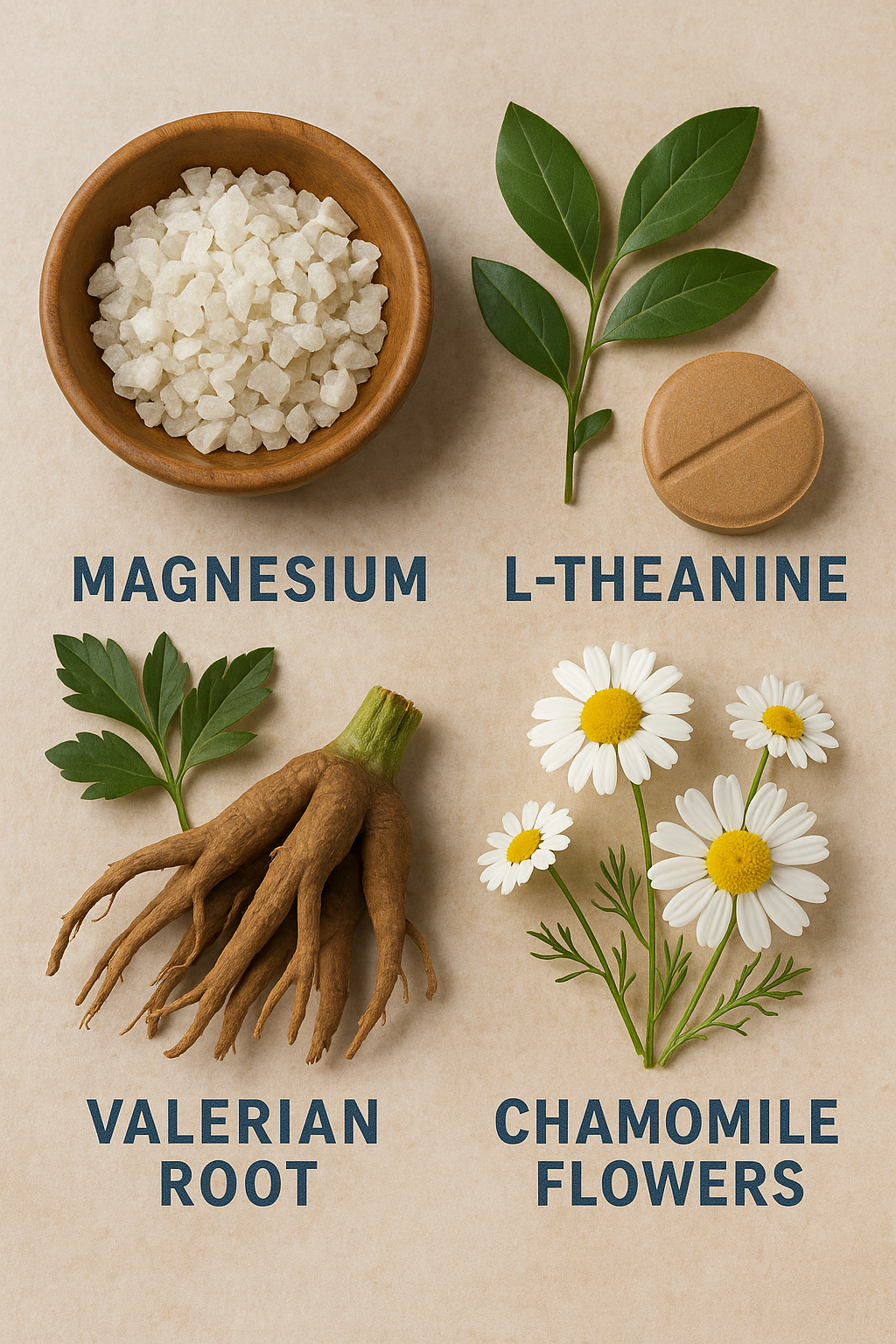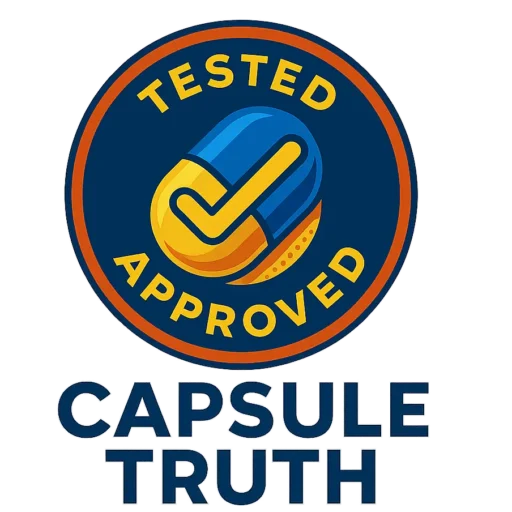Beyond Melatonin: Exploring Other Powerful Natural Ingredients for Deep Sleep
The Holistic Approach to Rest: More Than Just Melatonin
When the conversation turns to natural sleep aids, melatonin often takes center stage. While undeniably effective for regulating circadian rhythms and signaling sleep, it's just one piece of a much larger puzzle. For many, truly understanding how to sleep better involves exploring a broader spectrum of natural ingredients that address various facets of sleep disruption, from anxiety and muscle tension to neurotransmitter imbalances. This article delves into powerful, science-backed natural compounds that work synergistically to promote deep, restorative sleep, offering alternatives and complements to melatonin for a more comprehensive approach to your nightly rest.

Magnesium: The Mineral for Relaxation and Rest
If you're looking for ways on how to sleep better, magnesium should be high on your list of considerations. This essential mineral plays a crucial role in over 300 biochemical reactions in the body, many of which are directly involved in promoting relaxation and sleep. Magnesium helps activate the parasympathetic nervous system, which is responsible for calming your body and mind. It also regulates neurotransmitters, including GABA (gamma-aminobutyric acid), which is the primary inhibitory neurotransmitter in the brain, meaning it slows down brain activity to promote relaxation and sleep.
Furthermore, magnesium contributes to the regulation of melatonin production, the hormone that guides your sleep-wake cycle. Many people are deficient in magnesium due to modern diets and soil depletion, making supplementation a common and effective strategy for improving sleep quality. Different forms of magnesium exist, with magnesium glycinate or bisglycinate often recommended for sleep due to their high bioavailability and reduced laxative effect compared to other forms.
How does magnesium help with restless legs syndrome (RLS) at night?
Magnesium's role in muscle relaxation and nervous system regulation makes it a popular choice for alleviating symptoms of restless legs syndrome (RLS), a condition that can severely disrupt sleep. By helping to calm nerve activity and relax muscles, magnesium can reduce the uncomfortable sensations and urges to move the legs, allowing for more peaceful sleep. However, it's important to consult a healthcare professional for a proper diagnosis and treatment plan for RLS.
L-Theanine: The Amino Acid for Calm Focus
For those struggling with a racing mind at bedtime, L-Theanine offers a unique solution to how to sleep better. This amino acid, naturally found in green tea, is renowned for its ability to promote a state of wakeful relaxation. Unlike sedatives, L-Theanine doesn't induce drowsiness directly but rather increases alpha brain waves, which are associated with a relaxed, yet alert, mental state. This makes it particularly effective for reducing anxiety and mental chatter that often prevent sleep onset.
L-Theanine also influences neurotransmitters like GABA, serotonin, and dopamine, which play crucial roles in mood regulation and sleep. By promoting a calm and focused state, it helps individuals transition more smoothly from wakefulness to sleep, improving both the ease of falling asleep and the overall quality of rest. It's an excellent option for those whose sleep is primarily disrupted by stress, overthinking, or general restlessness, offering a gentle yet effective pathway to a more peaceful night.

Can L-Theanine be taken with melatonin?
Yes, L-Theanine and melatonin are often combined in sleep formulations because they work through different mechanisms to support sleep. L-Theanine helps calm the mind and reduce anxiety, while melatonin helps regulate the sleep-wake cycle. This synergistic effect can lead to more comprehensive sleep improvement for many individuals. Always consult with a healthcare professional before combining supplements.
Valerian Root: A Traditional Herb for Tranquility
Valerian root has been used for centuries as a natural remedy for sleep disorders, anxiety, and nervousness. Its efficacy in helping individuals understand how to sleep better is attributed to its interaction with the brain's GABA system, similar to how some prescription sleep medications work, but in a milder, more natural way. Valerian is believed to increase the amount of GABA in the brain, which helps to calm nerve activity and promote a sense of tranquility, making it easier to fall asleep and stay asleep.
While the exact mechanisms are still being researched, valerian root is often recommended for those experiencing mild to moderate insomnia, particularly when sleep difficulties are linked to anxiety or stress. It can help reduce the time it takes to fall asleep and improve overall sleep quality, leading to more refreshing mornings. It's important to note that valerian's effects can be subtle and may take a few weeks of consistent use to become noticeable for some individuals.
Does valerian root cause morning grogginess?
Unlike some prescription sleep aids, valerian root is generally not associated with significant morning grogginess or a
Frequently Asked Questions
To help you understand more about natural sleep ingredients beyond melatonin and how to sleep better, here are some common questions:
- Are these natural ingredients safe to take long-term?
Most natural sleep ingredients like magnesium, L-Theanine, and chamomile are generally considered safe for long-term use when taken at recommended dosages. However, it's always best to consult with a healthcare professional for personalized advice, especially if you have underlying health conditions or are taking other medications. - Can I combine these ingredients with melatonin?
Yes, many of these ingredients can be safely combined with melatonin, as they often work through different mechanisms to support sleep. For example, L-Theanine calms the mind, while melatonin regulates the sleep-wake cycle. Always consult a healthcare professional before combining supplements. - How long does it take for these supplements to work?
The onset of effects can vary. Some, like L-Theanine, might provide noticeable calming effects within 30-60 minutes. Others, like magnesium or valerian root, may require consistent use over several days or weeks to build up in your system and show full benefits. - Are there any side effects to be aware of?
Generally, side effects are mild and rare. Magnesium can cause digestive upset in high doses. Valerian root might cause mild dizziness or headache in some individuals. Always start with the lowest effective dose and monitor your body's response.
Ready to Discover Your Perfect Sleep Blend?
With so many powerful natural ingredients available, finding the right combination can be life-changing. We've meticulously reviewed the top sleep supplements that harness these ingredients for maximum effectiveness.
✨ See Our Top 3 Rated Sleep Supplements for 2025